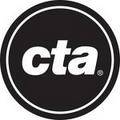Transit riders are warned to brace for possible
service cuts, fare hikes
March 19, 2015
By Jon Hilkevitch
Chicago Tribune
Transit officials are laying out a grim scenario of service cuts on buses and trains, fare increases, layoffs and commuters returning to their cars in droves as early as summer if lawmakers approve Gov. Bruce Rauner's plan to cut nearly $170 million to Chicago-area mass transit..
The CTA, which provides 81 percent of the rides in the area, would suffer the largest funding hit under Rauner's fiscal 2016 budget proposal, according to Regional Transportation Authority. They were to present their findings to the RTA board Thursday.
The CTA would face a 45 percent decrease in state funding, or a $130.1 million annual cut, according to the latest numbers crunched by the RTA, based on the governor's proposed budget book and discussions with his staff. The projected cut, up from an earlier estimate of $105 million, equals 9 percent of the CTA's operating budget, officials said.
To put that in perspective, $130.1 million pays for more than 10 weeks of bus service on the entire CTA system, CTA officials said.
Looking at it another way, it represents more than 23 weeks of rail service, or a year's worth of service on the Red, Orange and Brown lines, officials said.
"Gov. Rauner's proposed cuts threaten the CTA's four years of impressive, hard-fought gains. Now is not the time to try and reverse those gains with short-sighted state cuts,'' said CTA spokeswoman Tammy Chase.
She said it is too early to make public any contingency plans. The threat of a transit doomsday comes at a bad time for Mayor Rahm Emanuel, who faces a runoff election in less than three weeks. During Emanuel's tenure, the CTA has wiped out a $308 million deficit and begun a $5 billion modernization plan.
"Right now, our main priority is to work with the governor and the legislature on the importance of preserving transit funding for the nearly 1.7 million rides the CTA provides each weekday," Chase said.
Officials at Metra, which would lose 60 percent of state funding, or $20.8 million, said service cuts would be unavoidable under the Rauner cuts.
Metra raised fares an average of almost 11 percent in February and already plans more increases over 10 years. The commuter railroad would have to increase fares by about another 6 percent to make up for the proposed $20.8 million cut, officials said.
Metra Chairman Martin Oberman said piling on more fare increases "is just not a practical solution."
But to maximize savings while doing the least amount of harm to the 11-line Metra system, some entire train crews would need to be eliminated and that means trimming more than one or two runs on a specific line, Oberman said.
"(Rauner's proposal) leaves everybody up in the air," Oberman said, "but the idea would be to minimize the disruption and cut where it will affect the least number of people."
lOberman said the big question is whether government subsidies will continue to play a large role in funding public transit or if riders will be required to pay the full cost of using the system.
"What this really boils down to is: Are you going to have mass transit, and who is going to pay for it?'' he said.
Contacted Wednesday about the RTA's projections, officials from Rauner's office gave no indication he would budge on his proposal that would cut state funding to the CTA, Metra and Pace.
"The governor looks forward to working with the RTA to help them implement many of the reforms he has already proposed that will help reduce costs and provide greater value for taxpayers," said Rauner spokeswoman Catherine Kelly.
Rauner faces an uphill struggle to win approval from the Democratic-controlled General Assembly concerning his deficit-reduction plan to cut funding to the CTA, Metra and Pace and a host of other agencies statewide. House Speaker Michael Madigan, D-Chicago, has indicated it's likely to take a combination of cuts and new revenue to get a final budget passed.
RTA Executive Director Leanne Redden said if service cuts become necessary, they could go into effect sometime after July 1. The transit agencies operate on a calendar-year budget, while the state's budget is on a fiscal year, which starts in July.
"These cuts could ultimately result in hundreds of thousands of drivers returning to our already heavily trafficked road and highway system and impact vital connections to jobs and education throughout the region," Redden said.
RTA Chairman Kirk Dillard said other states have increased mass transit investment.
"Illinois should not be cutting mass transit, as it is a major economic development generator for our region and the state,'' he said.
Pace would see a 41 percent decrease in state funding, amounting to a roughly $10 million cut to its suburban bus system, according to the RTA analysis.
Pace Executive Director T.J. Ross said $10 million may not seem like a lot of money, but it would come out of the agency's $223 million operating budget and hurt most Pace customers who do not have alternate means of transportation.
"When we reduce service, it hurts people and they cannot get to jobs,'' Ross said.
He said $10 million represents 60 percent of Pace's administrative costs, or the expense of operate two of the suburban bus agency's nine garages.
Meanwhile, paratransit services, which are provided through Pace under the Americans with Disabilities Act, would lose about 15 percent of the state funds, or $8.5 million, according to the RTA.
Customers pay $3 per ride, while the cost to provide the federally mandated ADA service is roughly $40 per ride, officials said. The service's projected annual cost is $172 million, while revenue from fares totals about $14 million, Pace spokesman Patrick Wilmot said.
Ross said if the loss in state funding were placed on the backs of paratransit customers, the paratransit fare could easily rise to $5.
"That would be very hard on people,'' said Ross, who urged all transit riders to contact their elected officials to voice opposition to the governor's proposed funding cuts.
Federal law prohibits transit agencies from discriminating against people with disabilities because transportation is a civil right. But Dillard said the state law covering free rides for some senior citizens, based on income levels, should be reviewed in the wake of the proposed elimination of $34 million in state reimbursements. The actual cost of providing state-mandated free rides and federally mandated reduced-fare rides totals $130 million, according to the RTA.
"It is grossly unfair to remove the last penny of subsidies to fulfill expensive state mandates when the subsidies we get today only cover a fraction of the cost of those mandates to begin with," Dillard said. "If the state is going to ask us to provide these services through state law, then they should provide the funding or they should lift the mandates under law."
The next monthly meeting of Citizens Taking Action for advancement of public transit and passenger trains will be on Monday, April 13th, from 7-9:00 PM, at Powell's Bookstore, Halsted and Roosevelt (800 W, 1200 S)
The CTA would face a 45% decrease in state funding
Fares
Service




